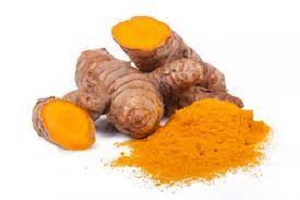Jaggery: What is Jaggery and is it better than sugar?
Benefits of Jaggery: What is Jaggery and is it better than sugar?

Jaggery Powder ImageJaggery is a natural sweetener that hasn’t been processed. It can be preserved in the form of powder or blocks which can be later mixed into a food item. It is also called MARZANKWAILA in Hausa
It is considered a superfood by some since it contains more vitamins and minerals than sugar and has a lower sucrose concentration.
However, because jaggery is a kind of sugar, it should be consumed in moderation. It is created from sugarcane juice that has been cooked to form thick crystals.
It comprises sucrose sugar and is used as a sweetening agent in a variety of foods.
Because it is an unprocessed natural sweetener, certain plant phytochemicals and minerals are conserved, it is regarded as healthier than refined sugar.
Its sweet, delicious flavor, one might imagine, is what makes it so popular.
This naturally sweetening food, on the other hand, provides numerous health benefits. It contains more vitamins and minerals than sugar and contains less sucrose.
Nutritional Value
Depending on the species of plant used to create it, the nutritional profile of this sweetener can vary (cane or palm).
Plain Jaggery powder has numerous health benefits, making it an excellent sweetener.
It contains 38 calories per 20-gram serving, 9.8 grams of carbohydrates, 9.7 grams of sugar, 0.01 gram of protein, choline, betaine, Vitamin B12, B6, folate, calcium, iron, phosphorus, magnesium, selenium, and manganese,
It contains no traces of fat, so you can easily incorporate it into your diet without worrying about consuming too much fat.
However, because its sugar level is identical to that of white sugar, diabetic people should limit their intake.
100 grams of jaggery, according to one source, includes:
- 383 calories
- 65–85 grams of sucrose
- 10–15 grams of fructose and glucose
- 4-gram protein
- 1 gram of fat
- Iron: 11 milligrams, or 61 percent of the recommended daily intake.
- Magnesium: 70-90 mg, which is around 20% of the RDI.
- Potassium: 1050 milligrams, or 30% of the recommended daily intake.
- Manganese: 0.2–0.5 mg, or 10%–20% of the RDI
Keep in mind that this is a 100-gram (3.5-oz) amount, which is far more than you would normally consume in one sitting.
You’d probably eat about a tablespoon (20 grams) or a teaspoon of it (7 grams).
Small levels of B vitamins and minerals, such as calcium, zinc, phosphorus, and copper, may also be present.
Benefits of Jaggery
Below are some of the health advantages of this popular food sweetener:
- Respiratory disease prevention
It could be one of the most beneficial therapies for folks who have recurring respiratory tract difficulties.
Incorporating these foods into one’s diet can help to prevent asthma, bronchitis, and other respiratory illnesses. Consuming jaggery and sesame seeds together is preferable.
This combo is fantastic for respiratory issues.
- Aids in the decrease of weight
Most people have to cope with the problem of weight gain. Modest consumption of it is a tried and true therapy for weight loss.
It contains potassium, which aids in electrolyte balance, metabolism, and muscle growth.
Additionally, potassium can aid in weight loss by reducing water retention in the body.
- Blood pressure is controlled.
Potassium and sodium are both presents. It helps to keep the body’s acid levels in check. As a result, normal blood pressure levels are maintained.
So, if someone has high or low blood pressure, incorporating it into their diet would be really beneficial!
- Assists in the relief of menstrual pain
It’s a natural way to relieve the pain of menstrual cramps.
Those who have mood swings or frustration before their periods should consume the same in modest amounts because it aids in the release of endorphins, which help to relax the body.
- Anemia prevention
To avoid anemia, enough levels of RBCs, as well as iron and folate, must be maintained in the body. It’s high in iron and folate, making it a smart approach to avoid anemia.
Adolescents and pregnant women are frequently advised to consume it by doctors.
Other jaggery benefits include:
- Aid in digestion
- Detox the liver and blood
- Treat lung and bronchial infections
- Relieve constipation
- Increase energy levels
- Relieve stress
- Gives the skin a beautiful shine
Benefits of jaggery for skin
Jaggery provides a variety of skin advantages, and they include the following:
Prevents the onset of old age.
The goodness of jaggery, sesame seeds, and vital herbs are used in Ayurveda to alleviate premature aging.
The reason for this is that jaggery is high in antioxidants, which combat free radicals and slow down the aging process.
If you’ve started to see fine lines, wrinkles, or age spots on your skin, it’s a good idea to replace sugar in your diet with jaggery. Even a modest amount ingested on a regular basis will yield the desired outcomes.
Reduces the appearance of pimples
Pimples appear out of nowhere on those with oily or acne-prone skin. It doesn’t appear to make a difference which faces wash or cream they use.
One of the many benefits of jaggery has been proven to be the reduction of pimples.
If you’ve done everything else to get rid of your pimples and acne, consider eating a lemon-sized piece of jaggery every day.
This will also improve the appearance of your skin by clearing the complexion, removing blemishes, and making it look perfect. Because jaggery is high in glycolic acid, which gently exfoliates and cures acne, this method works.
Glowing skin
Environmental stressors such as UV radiation, pollution, and dust rob our skin of its natural radiance, making it appear dull and lifeless.
Jaggery, on the other hand, can help you regain that glow. It contains glycolic acid, which is an important element added to many skincare products to improve the texture of the skin, as previously discussed.
Mix powdered jaggery, honey, and lemon juice together and apply to the face and neck. After 5-10 minutes, rinse and pat dry.
Pigmentation is removed.
It also lightens and eliminates pigmentation from the skin. 1 tbsp. jaggery powder, 1 tbsp. tomato juice, a few drops of lemon juice, and a pinch of turmeric powder
Apply this mixture to your face and let it sit for 15 minutes. Wash it off with regular water once it starts to dry
Soft Skin
Glycolic acid, found in jaggery, softens the skin. Simply combine 2 tablespoons of honey with a few drops of lemon juice in a tablespoon of jaggery to produce a paste.
Apply the mixture to your face and wait for it to dry. Once it has dried, wash it off with lukewarm water.
Benefits of jaggery for the health
It has numerous health benefits in addition to its skin benefits.
Eases menstrual pain
Is period pain bringing you down every month? The benefits of eating jaggery can help ease this pain and allow you to go about your day as usual.
Jaggery water works as a magic potion in easing abdominal pain and cramps associated with periods. Eating jaggery can also help with PMS, as it relaxes your body by releasing endorphins – the happy hormones.
So, the next time you are about to get your period, start eating it or drinking it to make that time of the month go smoother.
Helps in weight loss
It helps in the proper functioning of the digestive system and boosts immunity, which is essential while trying to lose weight.
A rich source of potassium, it helps in balancing the electrolytes as well as improving metabolism.
It also reduces water retention, thereby helping you manage and control your weight. Further, it contains high levels of vitamins and minerals that enhance its ability to induce weight loss.
It also helps eliminate toxins from the body which accelerates the weight loss journey. Anyone trying to lose weight should try to include it in their daily diet.
Treats cough and cold
In India, the benefits of jaggery were identified centuries ago and have been used since then to treat common ailments such as cough and cold. Those suffering from cough and sore throat often find relief after consuming it.
The reason is that it has a soothing effect on the soft tissues of the throat, thereby reducing the itchy sensation.
Eating it in its raw form is considered to be the most beneficial, but you can also add it to your tea or mix it in water and drink it to get relief from the problem.
Benefits of jaggery for weight loss
While there are no artificial additives in it, it is high in fiber and important minerals.
Its high vitamin content and lack of additional chemicals make it a popular sugar alternative as well as a potent weight-loss food.
If you’re looking for some jaggery benefits that will convince you to switch, here are a few:
Increases Metabolism
It contains vitamins that aid in maintaining a healthy electrolyte balance in the body as well as boosting metabolism.
A higher metabolism translates to faster calorie burning and weight loss. Isn’t that jaggery benefit enough to convince you to switch?
Water Retention is Reduced
It contains all of the important minerals and vitamins that aid in water retention. As a result, it aids in water conservation.
Constipation is avoided.
It promotes bowel movement and aids in the activation of the body’s digestive enzymes.
This allows meals to be digested more quickly, reducing constipation. You must incorporate jaggery in your weight-loss diet to reap the benefits of it
Detoxification
It is a potent cleansing superfood that cleanses the liver by flushing out harmful and undesirable impurities.
It also detoxifies the blood and increases the overall hemoglobin count.
Ways to include jaggery in your diet
- Eating a small piece in its original, undiluted form
- Adding it to your daily cup of tea as a sugar substitute – preferably black or green tea Mix it with water and consume it first thing in the morning to reap maximum benefits
- Make jaggery chapati by mixing melted jaggery, milk, and flour. Knead it into a dough, roll out chapatis, cook on a tawa and eat it fresh.
- Make a delicious dessert by cooking rice in a pan along with ghee, jaggery, cloves, and cardamom. Serve hot.
What Can You Do With Jaggery?
It can be used in a variety of ways, just like sugar. It can be grated or broken up and substituted for refined sugar in any meal or beverage.
It’s commonly used with coconuts, peanuts, and condensed milk to make traditional Indian treats and candies.
Jaggery cake and chakkara pongal, a rice and milk dish, are two examples. It’s also used to manufacture traditional alcoholic beverages like palm wine, as well as for non-food reasons like fabric dyeing.
This sweetener is commonly used as a sugar alternative in baking in the Western world. It’s also good for sweetening beverages like tea and coffee.
Jaggery’s Harmful Health Effects ~ Side Effects
Excess sugar consumption is linked to a number of the world’s most common chronic disorders.
Excess sugar consumption has been related to an increased risk of obesity, heart disease, and type 2 diabetes, according to research.
Sugar is still sugar, despite its slightly changed nutritional profile. As a result, consuming too much of it is not recommended.
FAQs
Is jaggery healthier than sugar? Jaggery vs. sugar
Because of its nutritional value, it includes more nutrients than refined sugar.
Molasses is a healthy by-product of the sugar-making process that is typically removed when refined sugar is made.
The addition of molasses to the finished product provides a tiny amount of micronutrients.
Is it possible to use jaggery on your skin and hair?
However, few people are aware that jaggery is also beneficial to hair and skin.
It can make the skin look perfect and give it a natural shine by minimizing wrinkles.
It can also help with acne and pimples, as well as make hair look silky and lustrous.
Is it effective in terms of weight loss?
Moderate consumption of jaggery is a tried and true way to lose weight.
It’s high in potassium, which helps to maintain electrolyte balance while also stimulating metabolism.
What happens if you consume jaggery on a daily basis?
A small amount of jaggery can aid to boost immunity and boost metabolism.
However, consuming too much of it can cause an imbalance in digestion and constipation.
It is warm in nature and can increase body heat, which might interfere with digestion.
Is Jaggery Beneficial for Acne-Prone Skin?
Acne and pimples can be treated with jaggery. It can cleanse the complexion, eliminate blemishes, keep pimples at bay, and make your skin glow if you eat a lemon-sized lump of it every day. – Its anti-aging qualities also aid to prevent wrinkles.
Is it true that jaggery increases the number of male fluid?
According to Ayurveda, eating jaggery can boost sperm quality. It also helps with sperm production. In men, combining jaggery with amla or milk enhances physical strength and lowers urinary problems.
Is safe to offer jaggery to babies on a daily basis?
Only after the age of one year should jaggery is introduced to a baby’s diet. This, however, may change depending on the health of the infant and the advice of your doctor.
Pediatricians advise against giving sugar to babies until they reach the age of one.
Is there a link between jaggery and belly fat?
It may help with indigestion. Better digestion makes it easier to eliminate waste. This may aid in the reduction of abdominal fat.
It has been shown to aid in the elimination of hazardous pollutants.
How much jaggery is beneficial to one’s health?
For daily usage, 10 grams of jaggery should suffice.
It is undeniably a healthier and more nutritious version of sugar, but it is still sugar. As a result, it is critical not to drink too much of it.
Does jaggery boost immunity?
Some of the practical benefits of jaggery include protection against persistent cold and flu-like symptoms, which are widespread.
This is especially advantageous for people who have weakened immune systems. This is why jaggery can help improve immunity.
Is jaggery an excellent energy source?
Unlike sugar, which delivers a short-term energy boost, jaggery provides steady energy that lasts longer.
This is due to the fact that it is unprocessed, which ensures that blood sugar levels are not quickly altered and instead rise steadily. This, in turn, can aid in the prevention of weariness.
Is jaggery healthy for the liver?
As a result, many people choose to consume jaggery after a meal. It functions as a detox because it helps cleanse the liver by emptying out harmful toxins. Jaggery contains antioxidants and minerals such as zinc and selenium, which help to combat free radicals (responsible for early aging)
How long will jaggery last?
At a low temperature, jaggery can be stored for up to eight months. Jaggery may be stored without physical changes for 20 months at temperatures ranging from 7-9°C.
How is jaggery purified? Recipe
In a medium-sized saucepan, combine the jaggery and water.
Heat the pan on low heat. Simmer, stirring occasionally, until the chocolate has melted. Allow the mixture to cool completely. Impurities will settle to the bottom of the pan as it cools. To remove contaminants, you can alternatively strain it through a sieve.
Jaggery vs sugar
“Sugar and jaggery are both sweeteners created from sugarcane juice, but they’re made in different ways,” she explained.
Sugar is formed by condensing and crystallizing sugarcane juice syrup, while jaggery is made by heating the syrup for several hours and then molding it solid, according to Dr. Ankola
Jaggery Benefits for Male
For all of you weight-conscious gentlemen out there, jaggery is an excellent choice. It will aid in the burning of belly fat by increasing your metabolism.
Additionally, jaggery aids in the elimination of harmful toxins from the body and is high in nutrients essential for a balanced diet.


